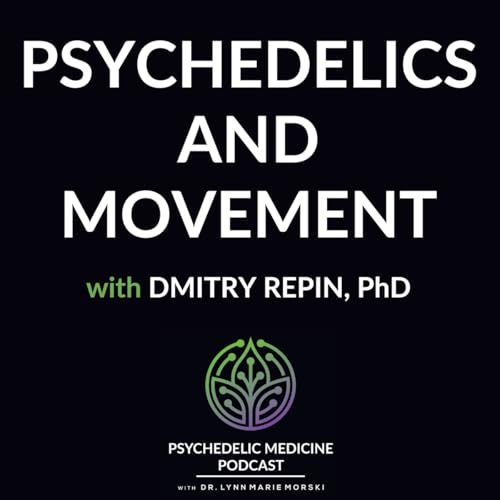In this episode, Will Van Derveer, MD joins to unpack what we know about which psychedelic medicines are best suited to particular mental health conditions. Dr. Van Derveer has trained several thousand mental health professionals in psychedelic-assisted psychotherapy, provided ketamine assisted therapy to hundreds of people, and has staffed MDMA therapy trials with MAPS. His book, Psychedelic Therapy: A Revolutionary Approach to Restoring Your Mental Health and Reclaiming Your Life, will be published by Shambala in the spring of 2026.
In this conversation, Dr. Van Derveer offers a clinician's framework for thinking through how different psychedelic medicines may align with different mental health conditions. He explores how factors such as anxiety levels, trauma history, prior psychedelic experience, and a person's orientation toward spiritual versus medical healing shape treatment decisions. Across discussions of anxiety, depression, PTSD, OCD, and eating disorders, Dr. Van Derveer reflects on the relative roles of ketamine, psilocybin, MDMA, and emerging short-acting psychedelics, while underscoring the importance of community, and integration. Throughout, he returns to a central theme: many conditions labeled as psychiatric may also reflect deeper forms of disconnection—social, existential, and spiritual—and psychedelic therapies can be powerful tools for restoring those lost connections when used thoughtfully.
In this episode, you'll hear:
- Why safety, medication interactions, and psychiatric history must come before all other considerations
- The difference between clinical and ceremonial approaches to psychedelic healing
- Considering when group versus individual approaches to psychedelic therapy may be best suited for a particular patient
- How ketamine, psilocybin, and MDMA may play distinct roles in treating anxiety and depression
- Considerations of dose, tolerance, and maintenance sessions for ketamine treatments
- Why MDMA-assisted therapy stands out for chronic and severe PTSD
- Dr. Van Derveer's perspective on emerging psychedelic medicines and the future of treatment
Quotes:
"As time wears on, I lean more toward the group dynamic [for psychedelic therapy] because of the power of community and healing in community. And also, of course, it can help mitigate the cost of access for people." [8:24]
"There's a lot of conversation about ibogaine right now, and I think it's an incredibly powerful, beautiful, sacred, ancient medicine that has a role. But it has a lot more porcupine quills on it than, say, ketamine or MDMA." [27:16]
"In acute suicidality, I think ketamine is the treatment of choice. There's nothing like it. … it can be quite impressive how quickly suicidal thoughts melt away. But it is a short game because often it doesn't stick for people. And that's a huge drawback." [28:39]
"We know that there are clear associations between chronic depression and high levels of inflammation in the body and also in the brain. Ketamine and psilocybin both have strong anti-inflammatory effects. But it seems like somehow the pathways that psilocybin is working on… tends to produce longer term benefits." [30:10]
"I tend to think that spiritual connection—in whatever your language is, whatever your metaphors are, however you think about it—is something that we need to think about for health overall." [40:21]
Links:
Dr. Van Derveer on LinkedIn
Dr. Van Derveer on Instagram
Dr. Van Derveer on X
Dr. Van Derveer's forthcoming book, Psychedelic Therapy: A Revolutionary Approach to Restoring Your Mental Health and Reclaiming Your Life
Integrative Psychiatry Institution website
Previous episode: Is Psilocybin Safe for Me? with Seth Mehr, MD
Psychedelic Medicine Association
Porangui
 46 mins
46 mins 38 mins
38 mins 45 mins
45 mins 35 mins
35 mins 44 mins
44 mins Nov 20 202530 mins
Nov 20 202530 mins 26 mins
26 mins 39 mins
39 mins
